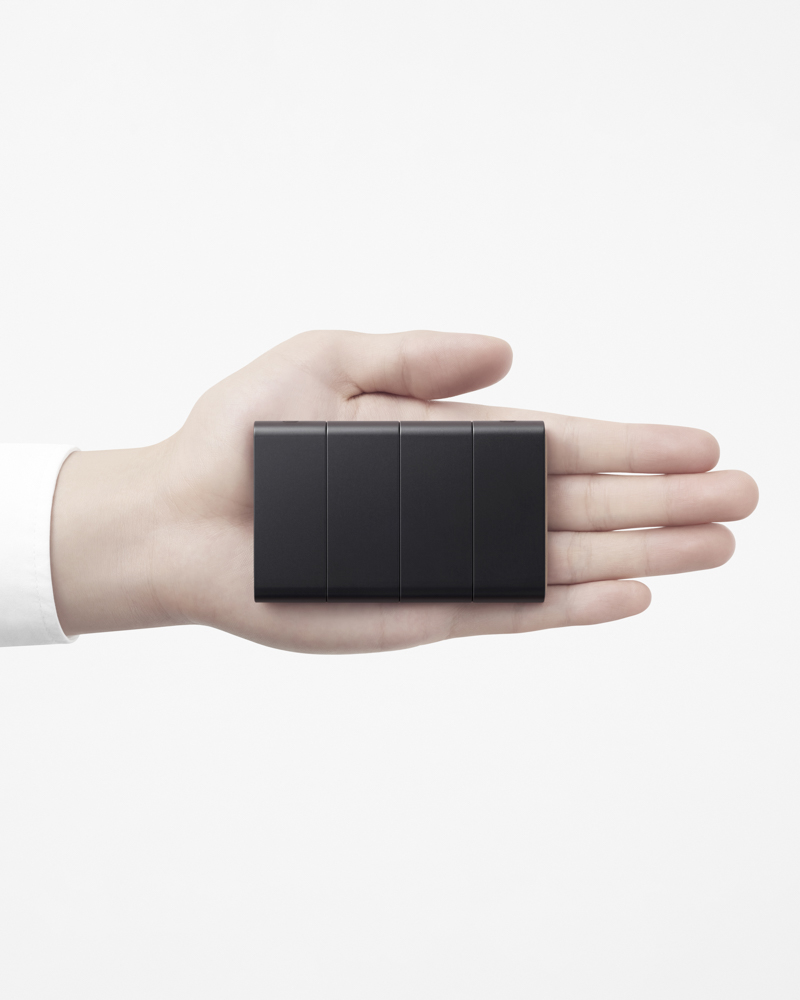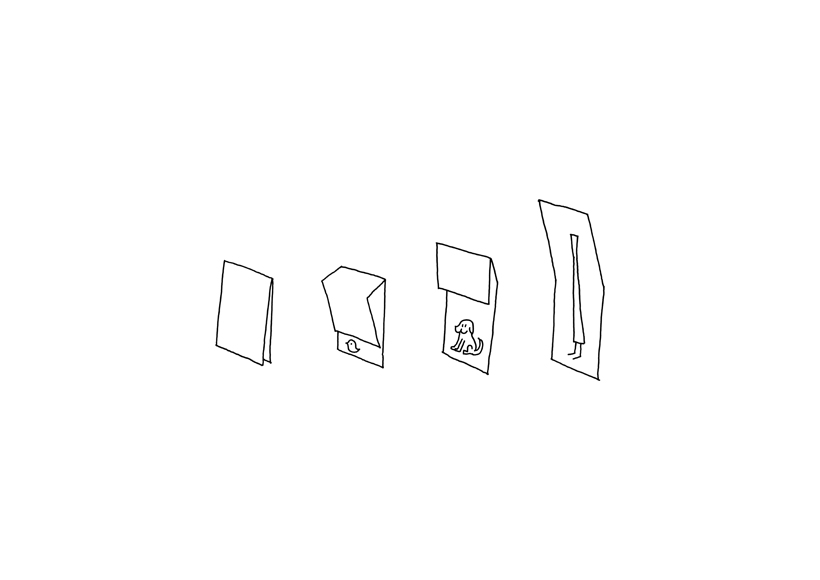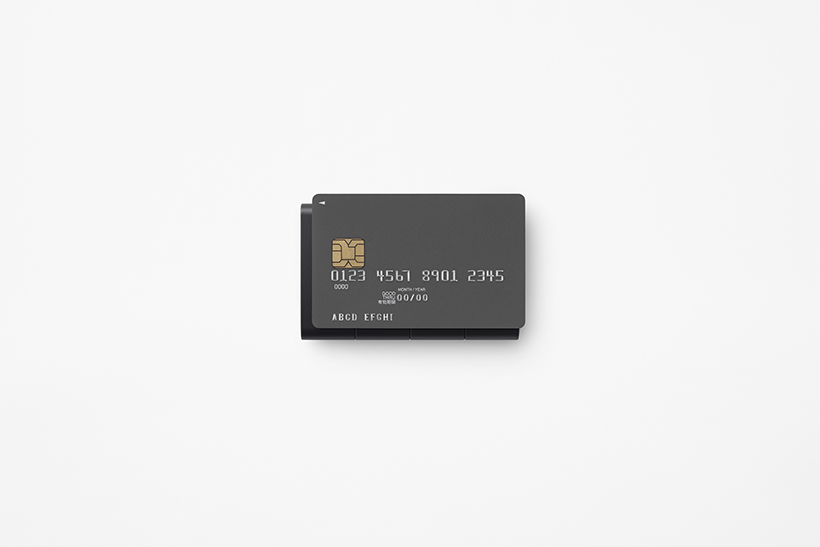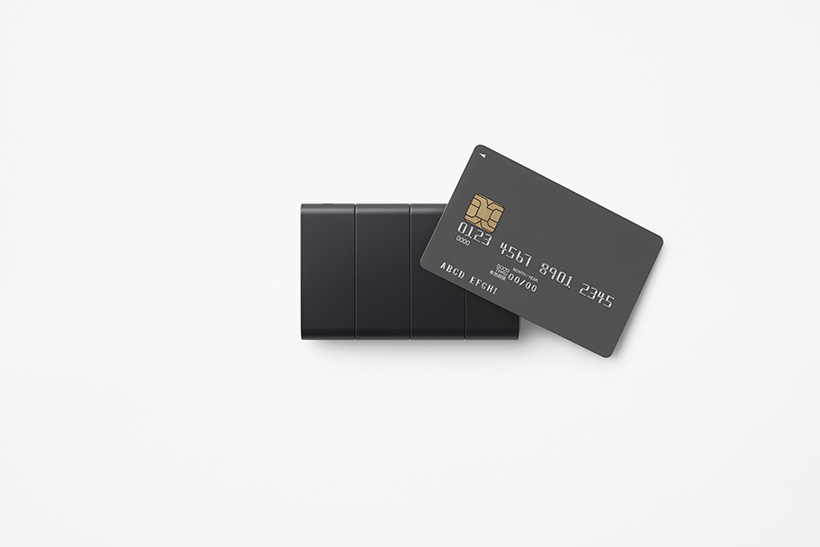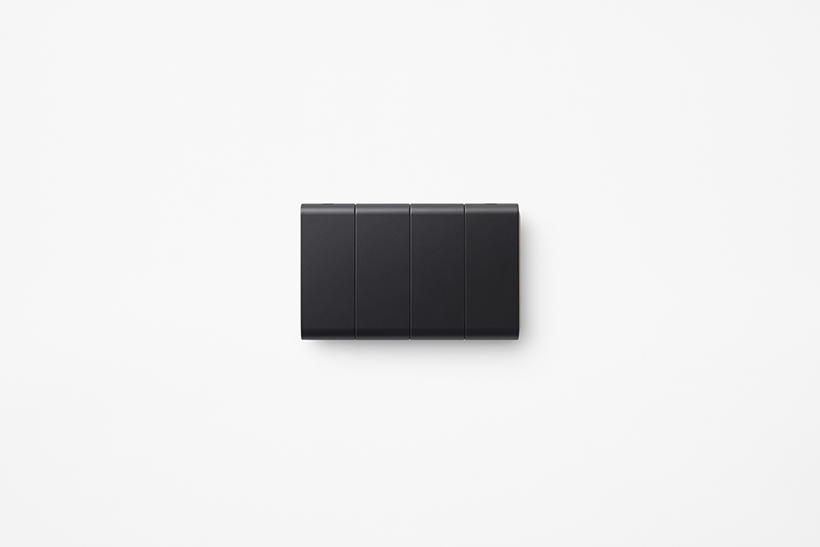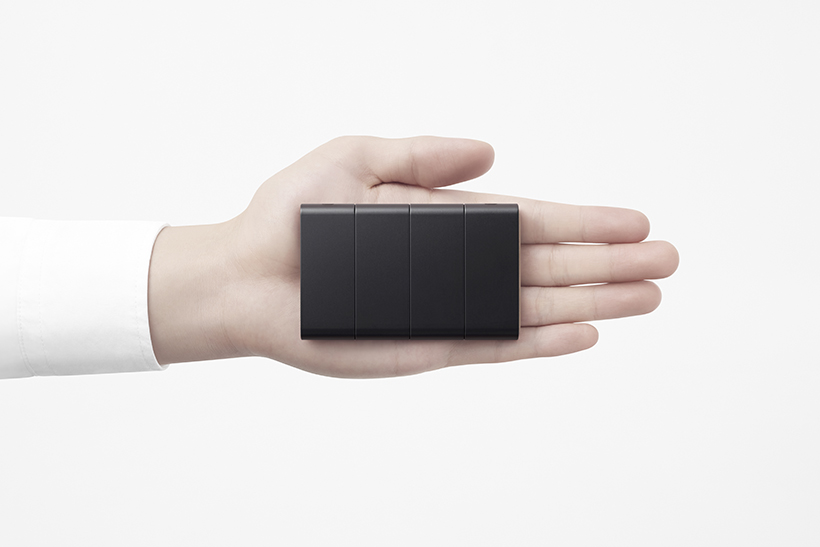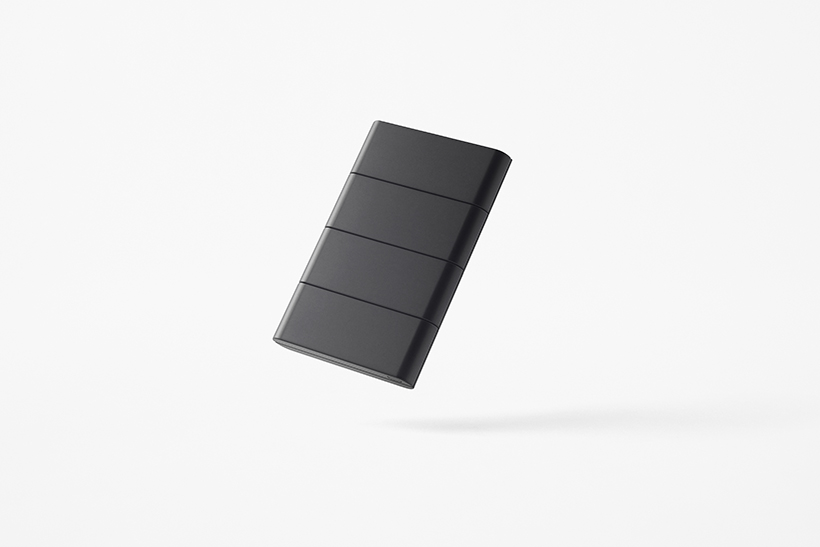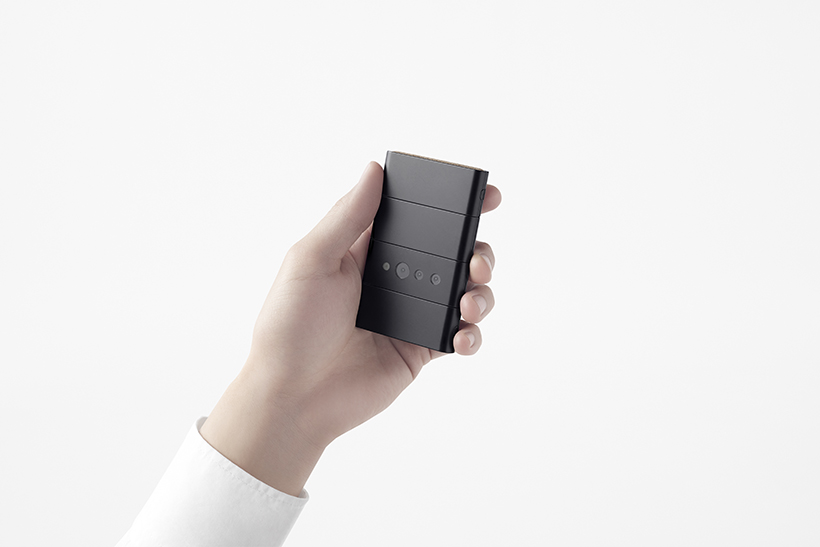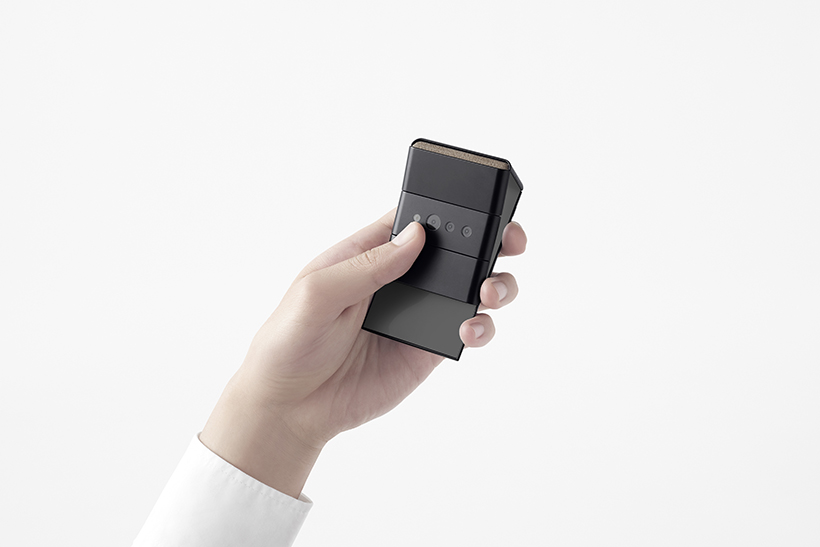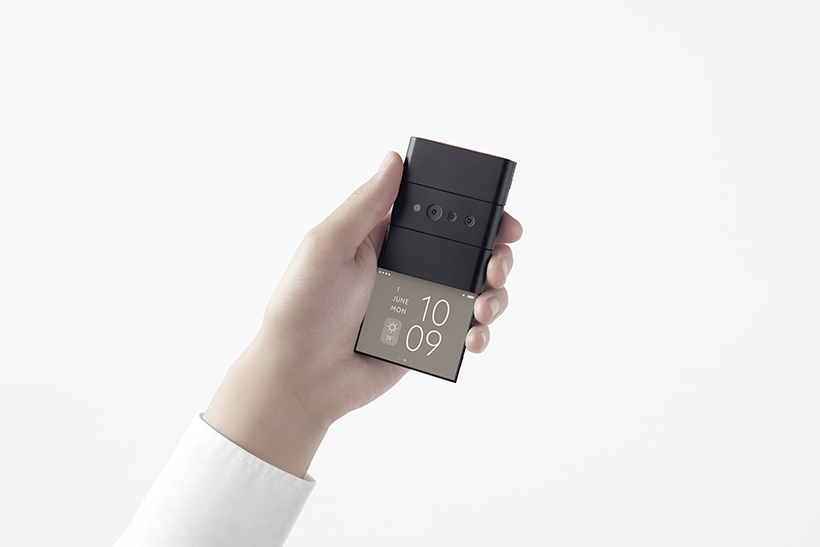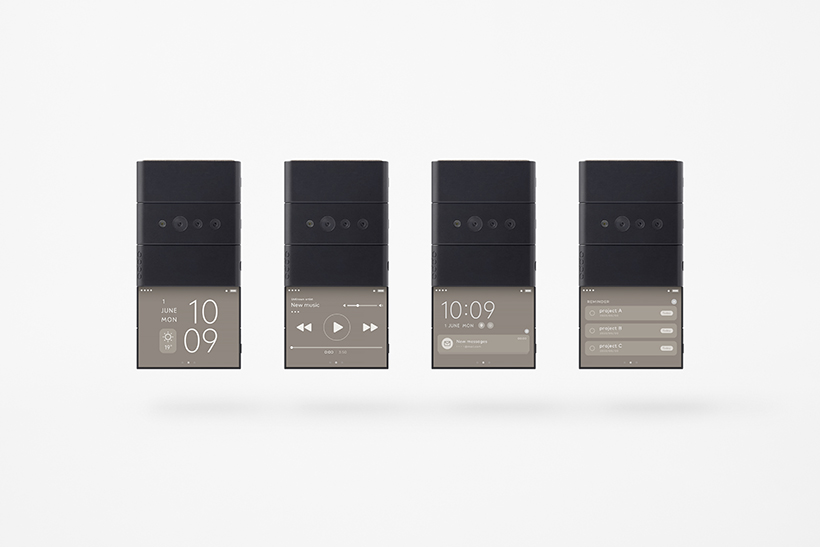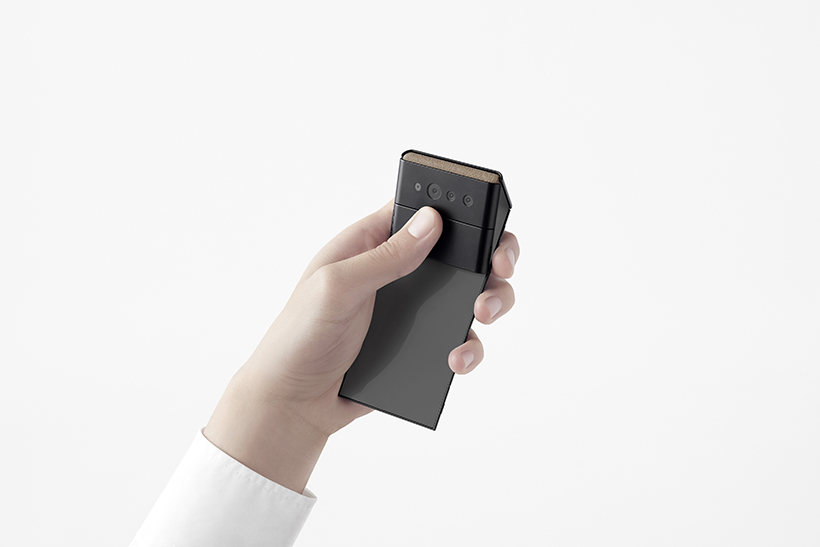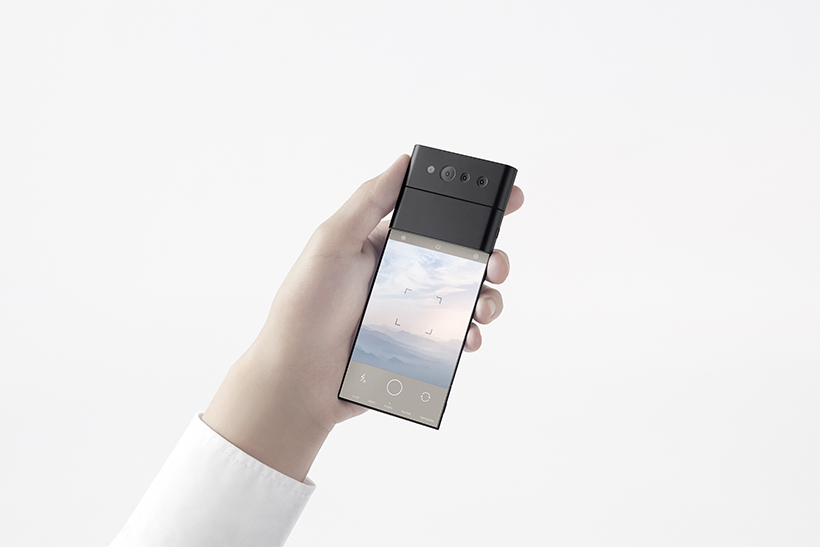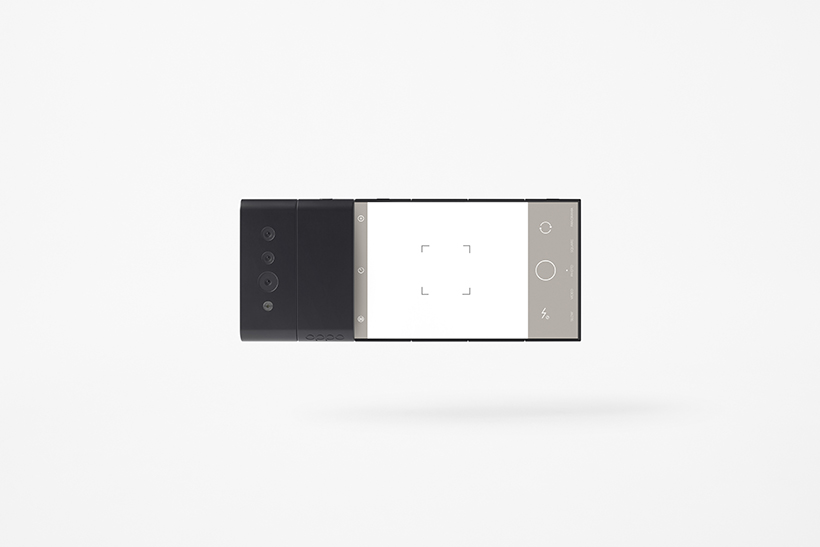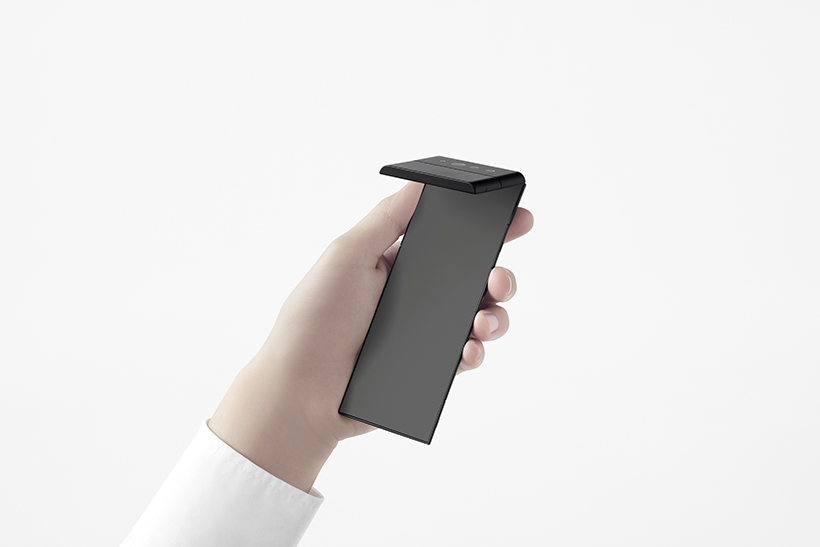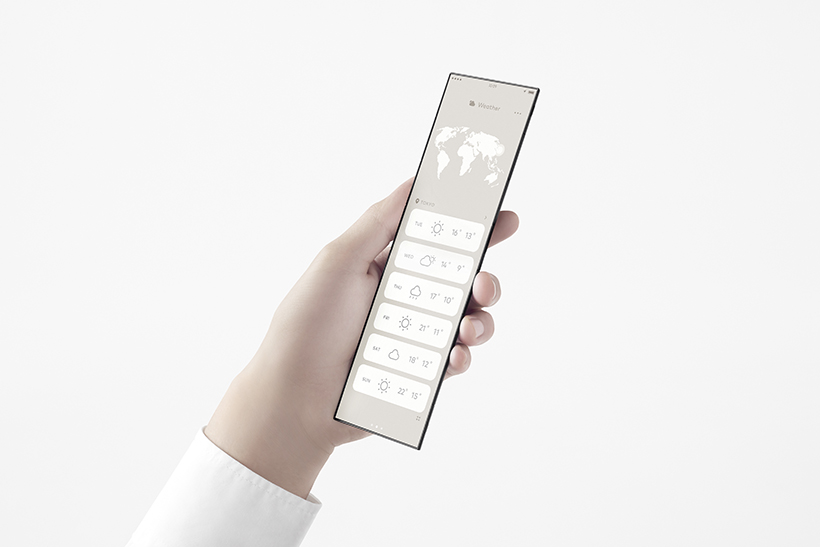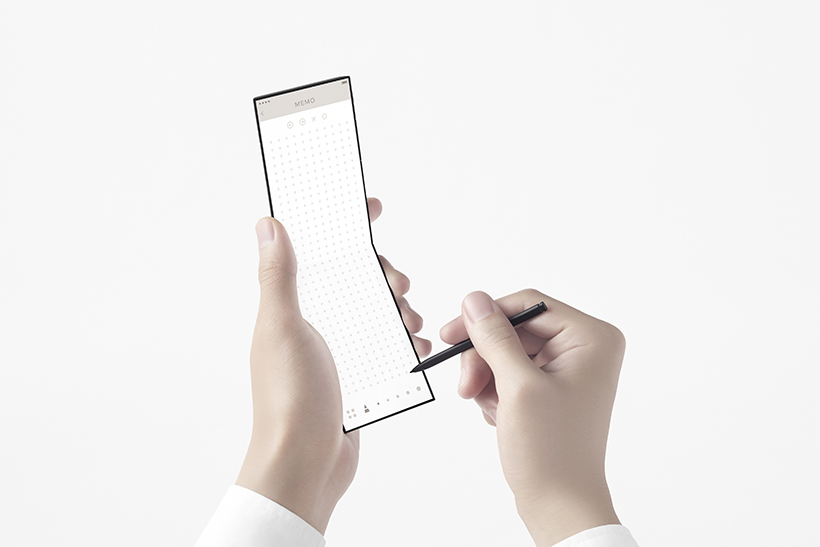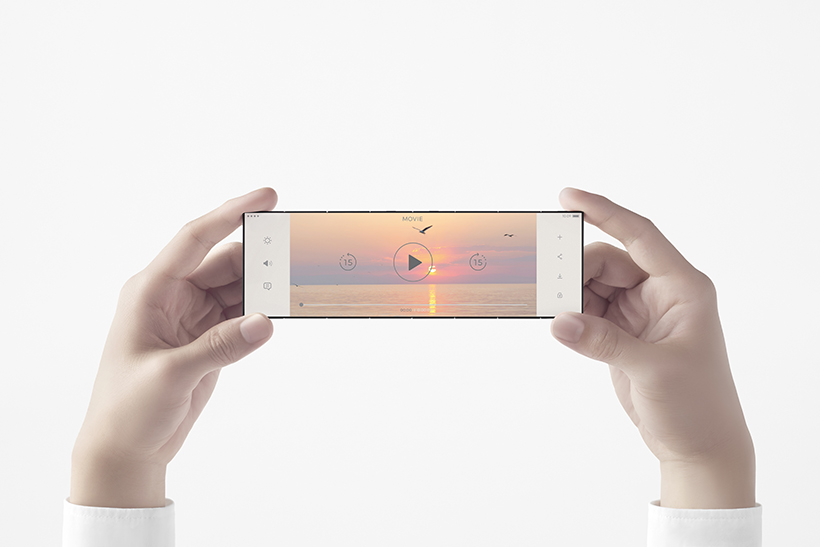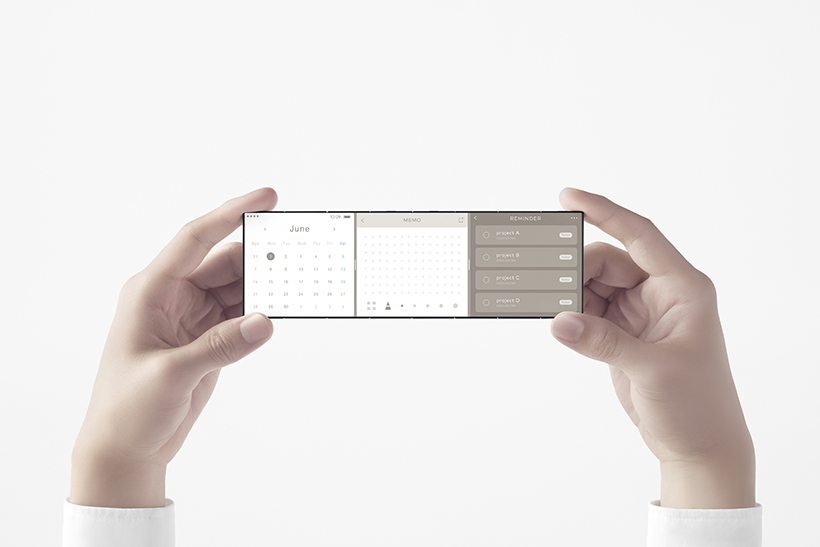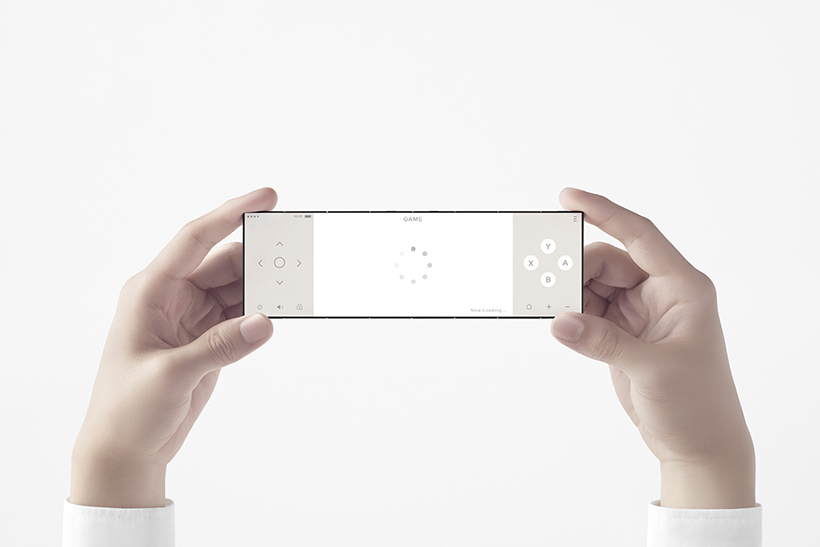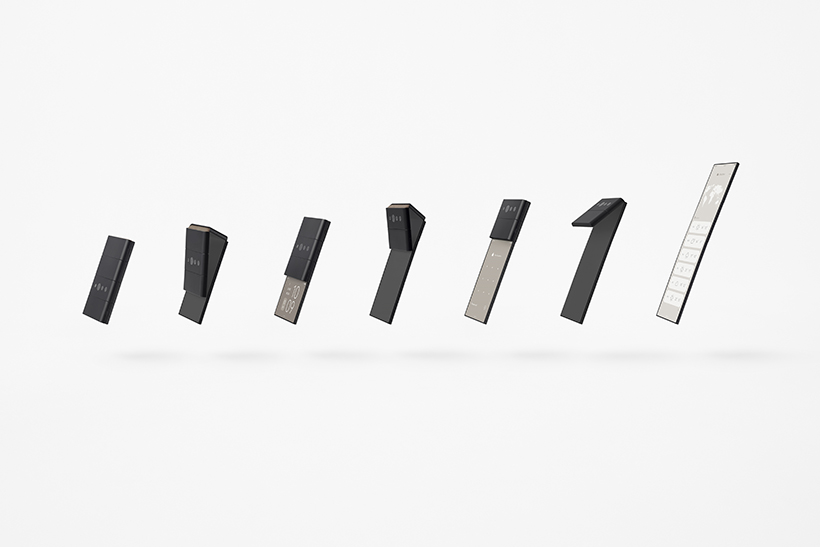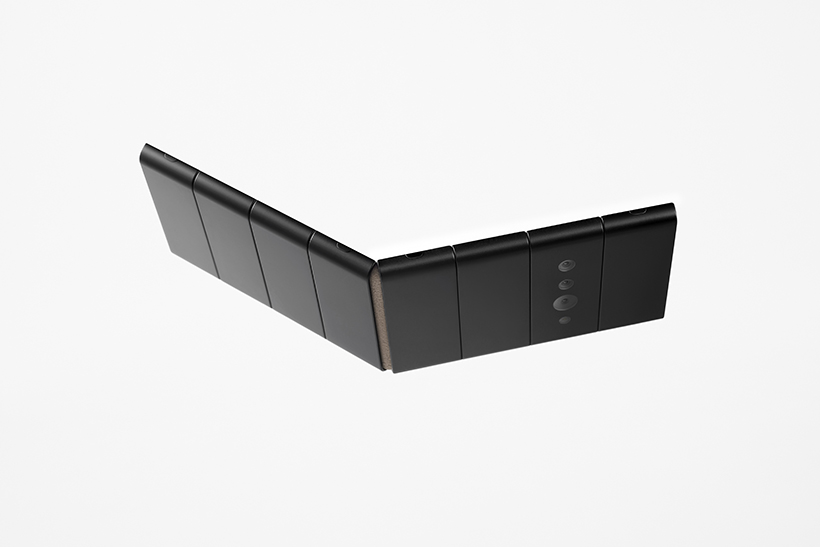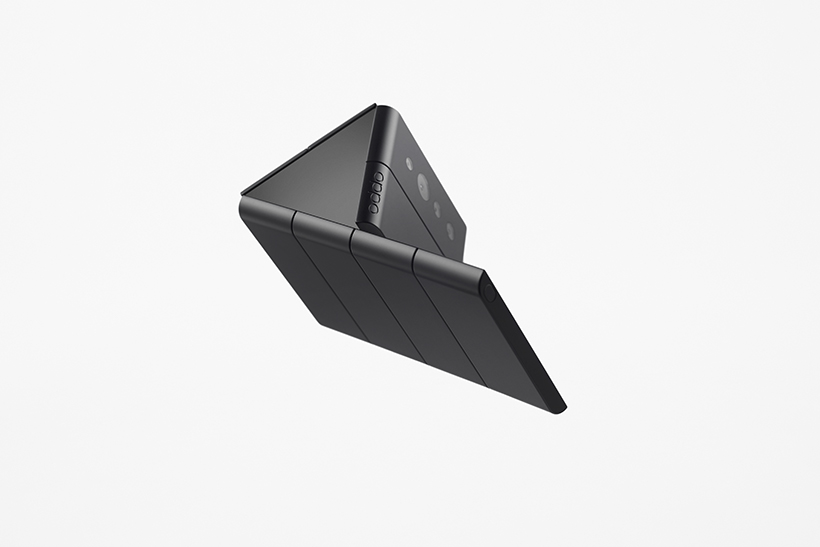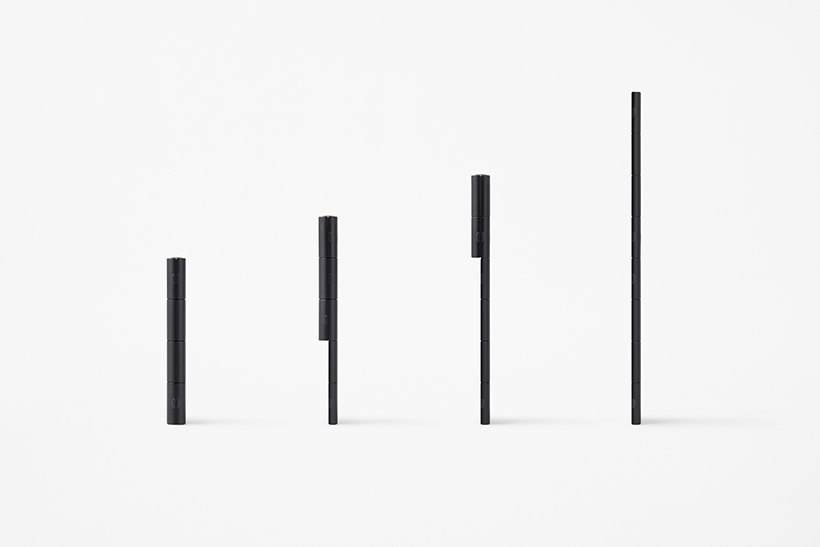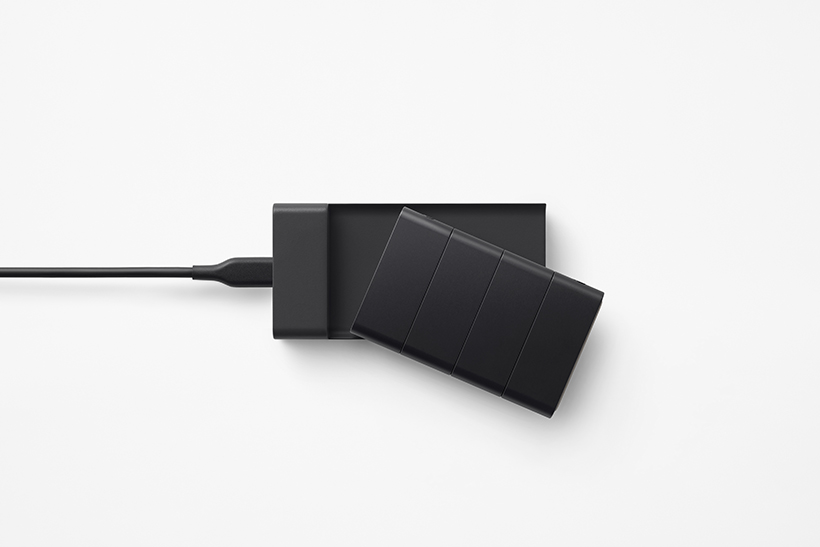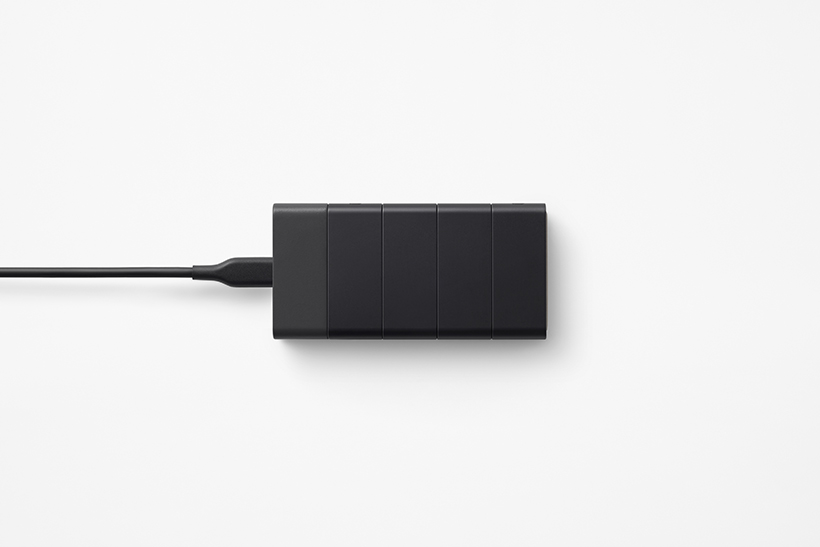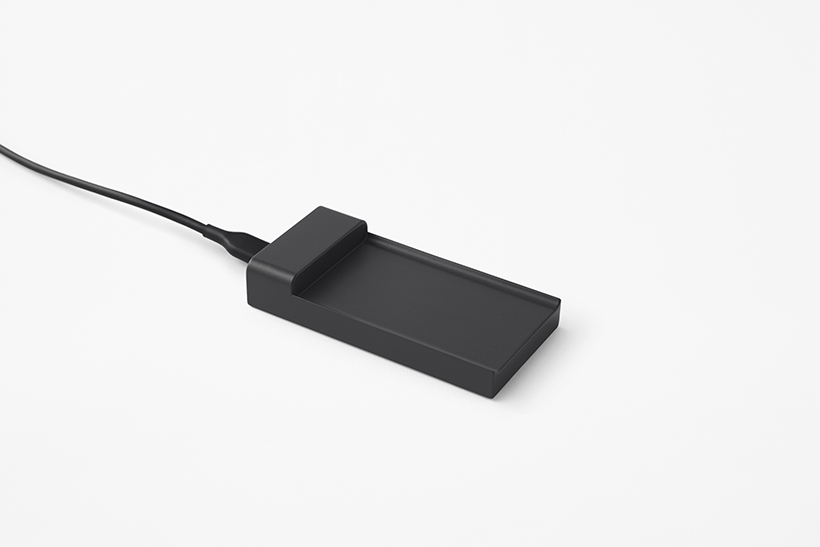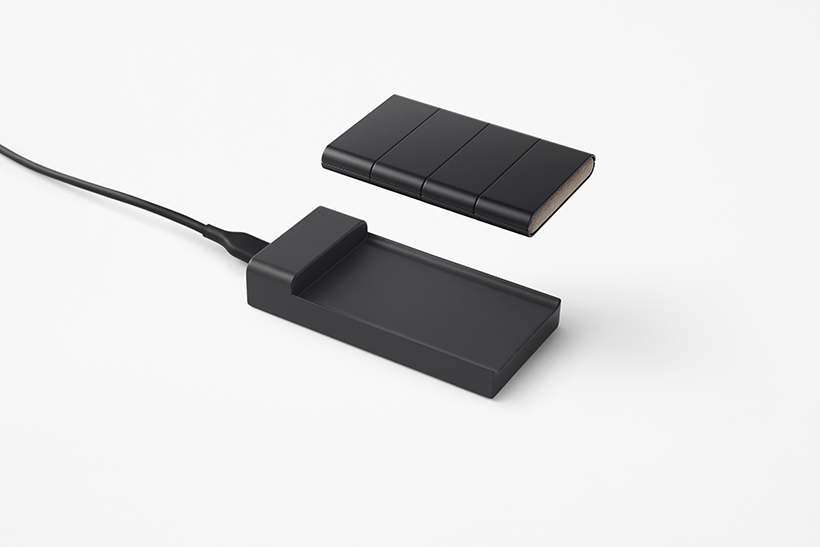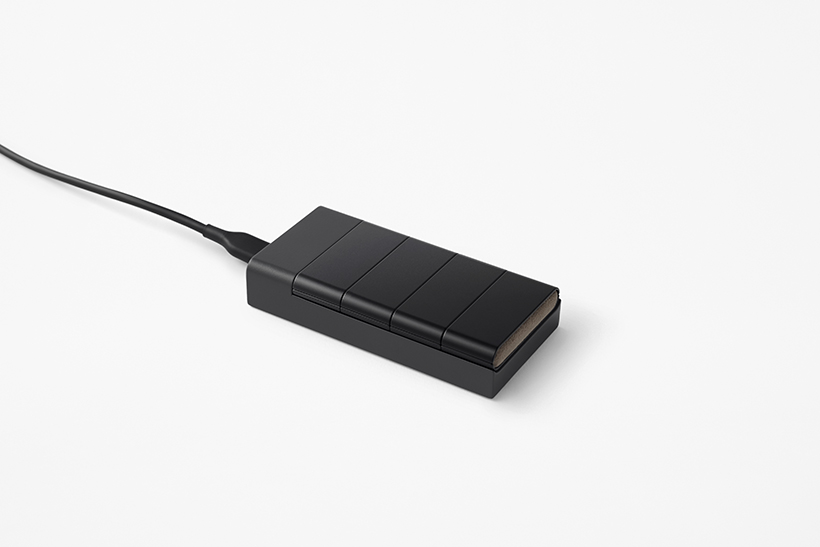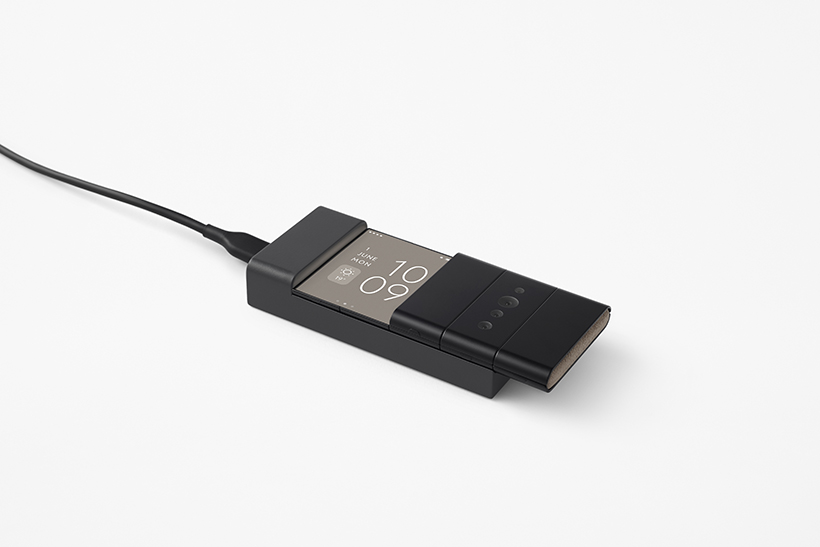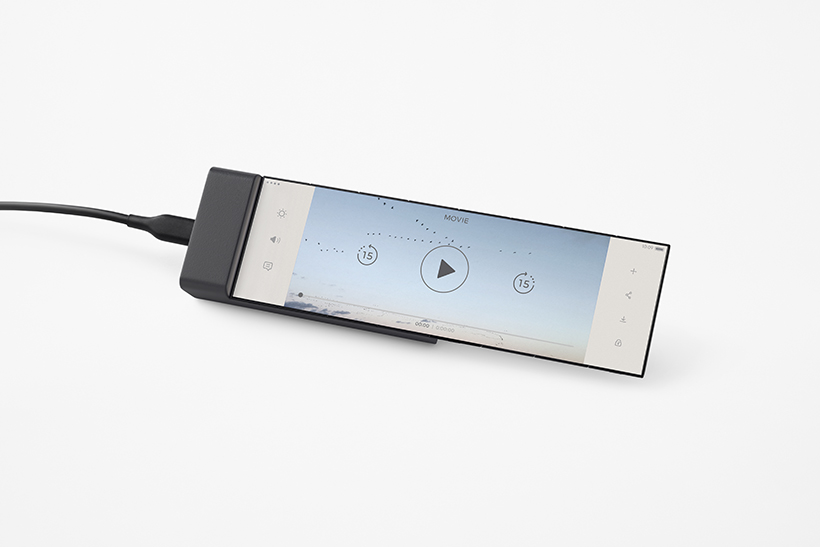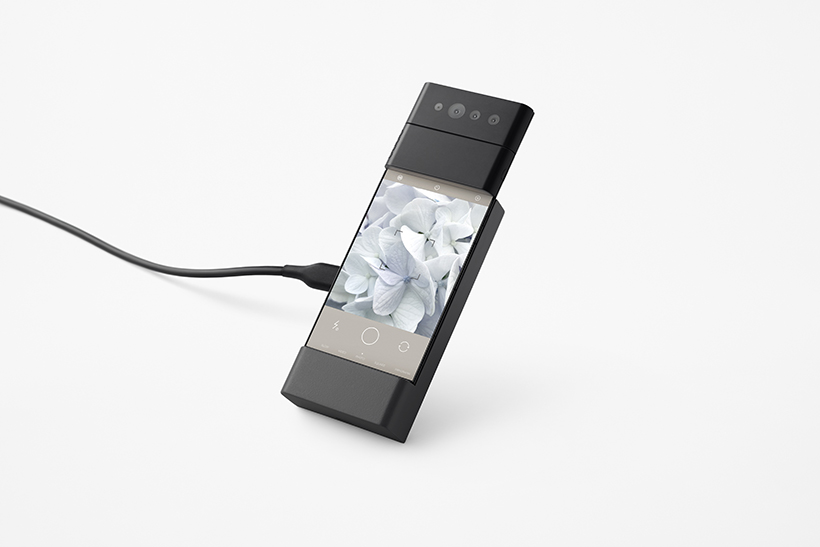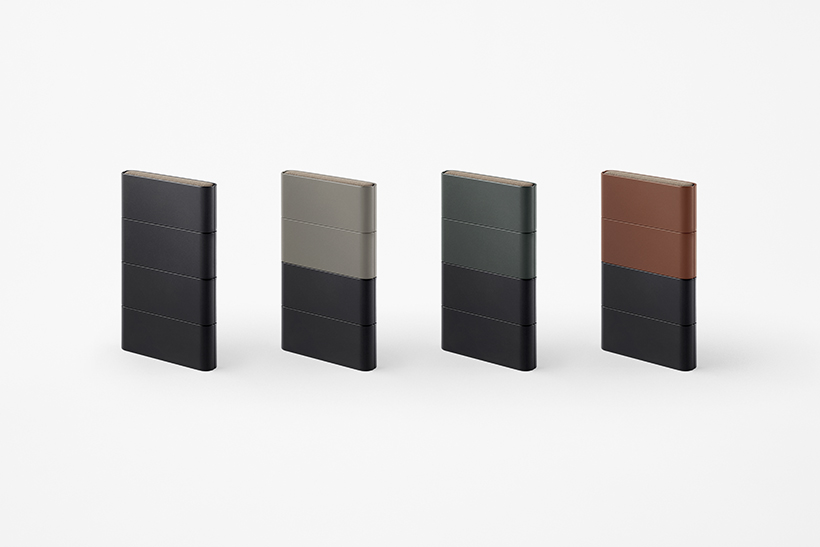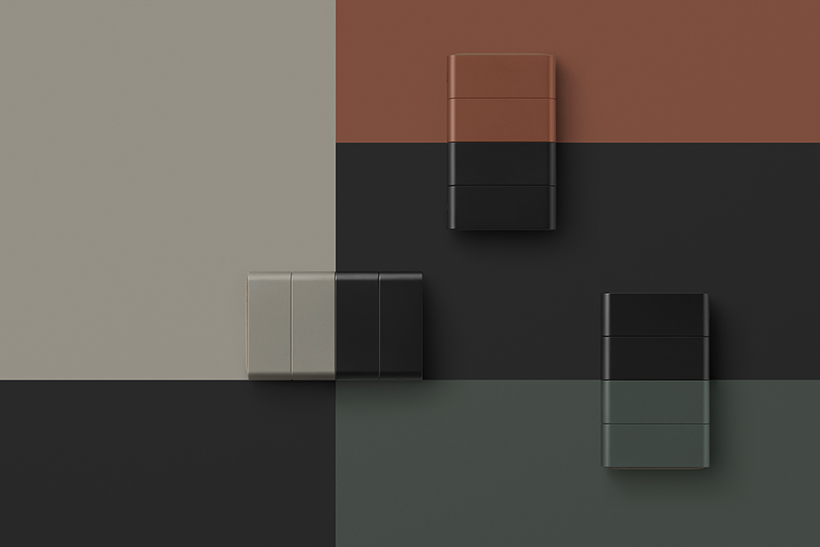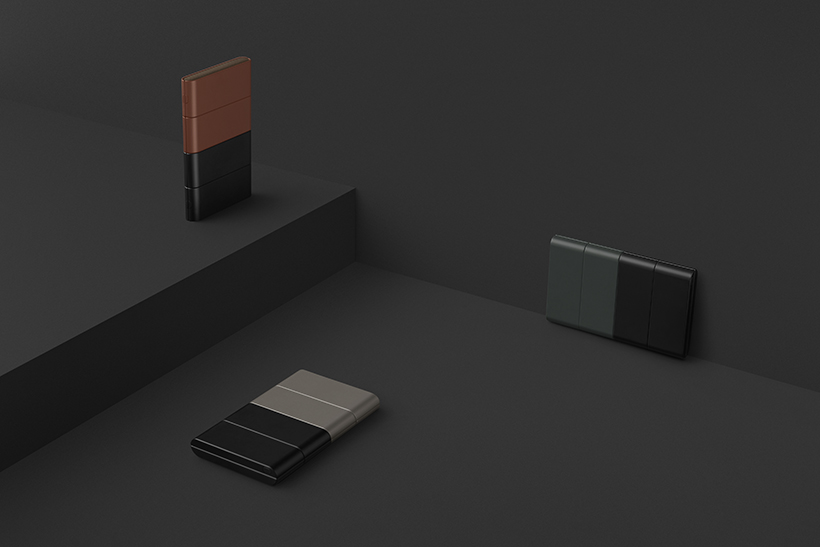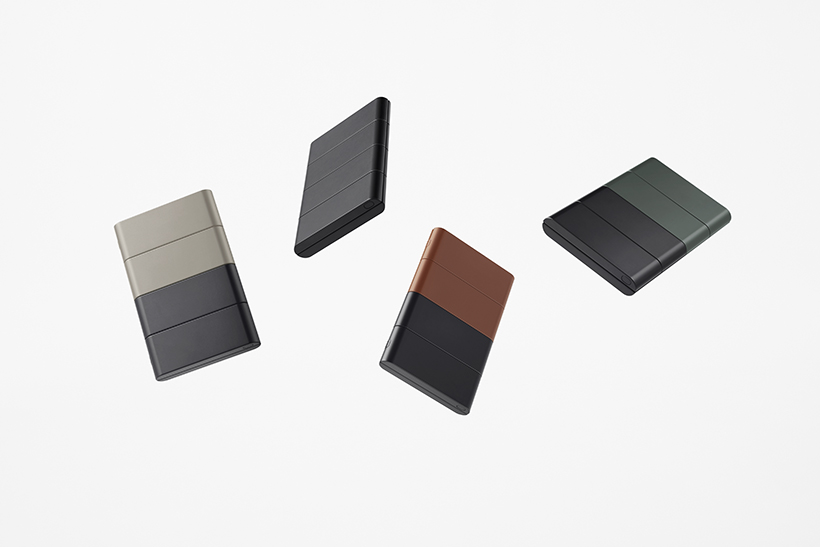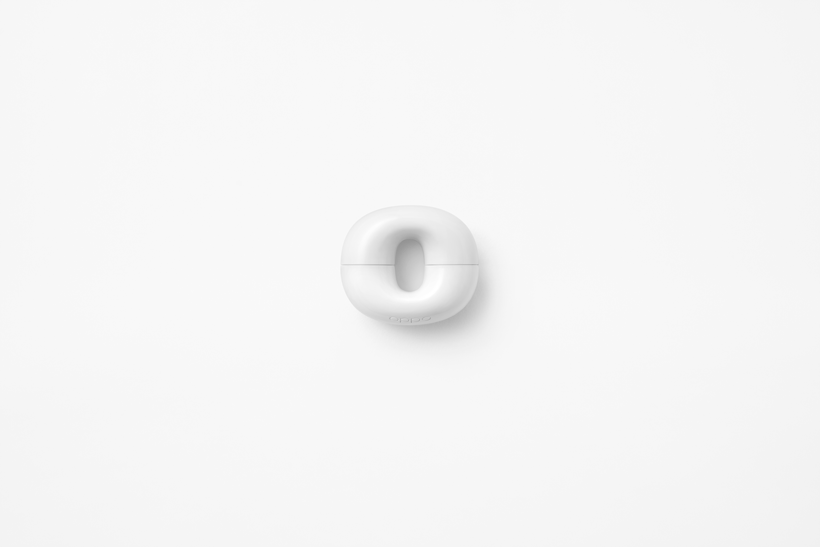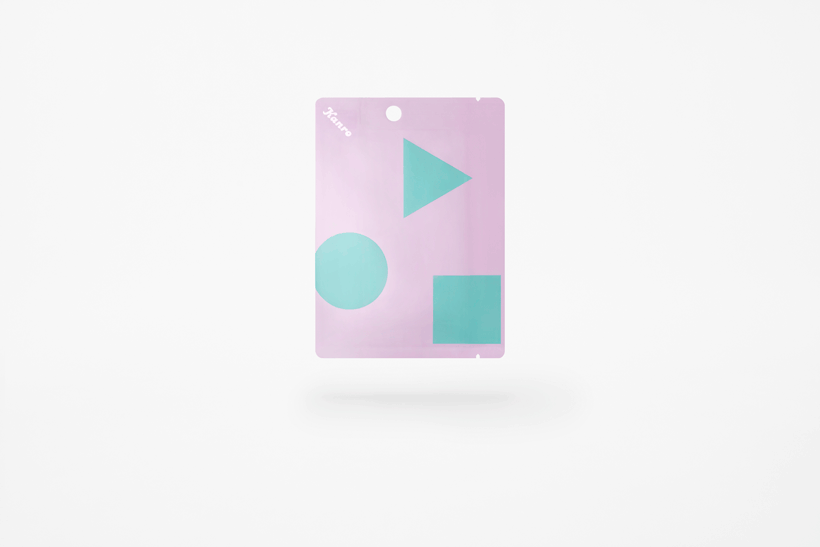slide-phone
Among foldable smartphones with OLED panel monitors developed in recent years, most follow the trend of folding to the size of a standard smartphone and unfolding to a screen two or three times as big.
By using the folding technology, portability was enhanced exploiting the compactness for a new sense of functionality instead of the screen being enlarged.
The phone in its folded state is 54 mm by 86 mm, the size of a credit card, featuring three hinges folding over in the same direction.
Like an inchworm, the phone makes use of its multiple joints to in effect slide sideways, and can be transformed only by the user’s one thumb operation.
Sliding one fold up exposes 40 mm of the screen with various functions, such as the time, call history, notifications, and even the music player interface, all available on the limited area.
Next, sliding the second fold reveals 80 mm of the screen as well as the camera, which the user might notice has simultaneously moved to the top of the device.
This is a fitting configuration for taking selfies or video calls and other functions linking the screen with the front-facing camera. Unfolding the entire phone unveils a 7-inch screen with a unique, slender proportion.
In addition to playing videos with an operable side panel, the user may also enjoy the phone as a controller in game mode with panels on either side, in multitask mode with numerous apps displayed in a row, and panoramic photography mode in full screen.
The controls on the side of the phone are shaped like ellipses cut in half, functioning as two to four buttons, becoming small, semicircular buttons or combining into one large button as the folds slide up and down.
Further, the stylus ordinarily inserted in the phone may be taken out for use and the phone folded in half to give the user the feeling of writing in a notepad.
The notion resulted in an interface allowing the user to open and close the upper half of the screen to, as it were, flip the page.
The hinges are covered with suede leather to prevent the impression that, for having three hinges, the phone is an inorganic, rigid contrivance.
The rest of the phone is colored in calming tones selected for their compatibility with this leather.
Lastly, the wireless charger stand is angled to match the hinged state of the phone so as to have an integrated appearance while charging.
The design opens up new possibilities for smartphones, for their use not only while fully folded or opened but while partially unfolded or while bent.
